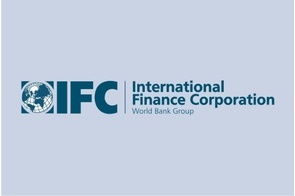Digitizing payments can reduce transaction cost by 90 percent

Summary
The development of a DFS ecosystem depends on the underlying regulatory framework and its ability to foster innovation and promote competition.
In this interview, Sacha Polverini, Chairman, ITU’s Focus Group on Digital Financial Services, addresses issues in the evolution of DFS. Mr. Polverini, who is a senior Programme Officer with the Bill and Melinda Gates Foundation, speaks in his capacity as Chairman of ITU’s Focus Group on Digital Financial Services, and “we” refers to the Focus Group. He was interviewed by Jide Akintunde, Managing Editor, Financial Nigeria magazine and Financialnigeria.com.
Jide Akintunde: The world economy is going through a multi-faceted transition and creative disruption, but not without some concerns and, in some cases, pushback by traditional operators. What is the case for the disruption by digital financial services?
Sacha Polverini: Digital Financial Services have been revolutionizing the financial services sector. The most visible changes are seen in the payments industry with major innovative solutions in people’s ability to seamlessly send and receive money through different channels. Why is this important? Digitizing payments – transitioning from cash to digital money – has several major benefits, such as increased efficiencies, traceability, speed and most importantly lower costs per transaction, which can be reduced by up to 90% compared to paying with cash. This is a key point in our campaign to promote financial inclusion. One of the main reasons why low income households cannot access formal financial services is that they are too expensive compared to the revenues they generate.
With mobile payments, the market has witnessed the emergence of new, non-bank players such as mobile network operators who are aggressively contesting the market. As this paradigm is changing, it is creating opportunities and challenges for policy makers and regulators who find it challenging to keep abreast with market developments and fully appreciate the risks the financial system and consumers are exposed to when dealing with DFS. As the categorization of products and services is increasingly blurred, it can be challenging for both telecom and financial services regulatory bodies in many emerging markets to develop appropriate guidelines.
Digital Financial Services also have the advantage of bringing governments closer to the public, in particular in relation to the provision of social subsidies to low income households. In many countries, millions of dollars of direct benefit transfers are still disbursed in cash. However, when this payment stream is digitized it would imply several major efficiencies: citizens receive the money directly in their mobile wallet, regardless of where they are and without the risk of corruption or the money being stolen.
JA: The Nigerian Securities and Exchange Commission recently said it was collaborating with peers in some advanced markets on the introduction of the regulatory framework for crowdfunding to take off in Nigeria. This is a case in point about how regulatory lag is a hindrance to digital finance, given the demand for crowdfunding in Nigeria. How is the Focus Group working to address this challenge which spans several financial jurisdictions in the developing world?
SP: Digital Financial Services is a fast evolving industry with a host of new players such as telecoms providers, retailers and alternative payment service providers that until now have not been part of the core financial services mix. Many of the current rules and definitions were developed for the FS industry, but the new players require different regulatory approaches. To build the right framework and guidelines, regulators need to first develop a proper understanding of the various risks involved, for both the financial system and end-users. Finding the right balance, and calibrating the appropriate regulation, are critical; over-regulation could stifle innovation and kill any industry before it has had the chance to develop and mature; under-regulation can lead to abuses and excessive risk-taking.
To properly identify and assess risks, data and experience are essential. Different countries can learn from each other and exchange knowledge that can be adapted to the local needs. The right data then needs to be combined with initiatives aimed at building local capacity so that policymakers can leverage past experience and ensure the security of the financial system.
JA: A skeptic of revolutionary digital finance might say that some of the existing solutions are risky, underutilized, and that e-payment concentrates financial access on the already served, while the impact of DFS on the real economy is at best indirect. How would you like to dispel the skepticism and also address issues around consumer protection in digital finance?
SP: Financial inclusion is not an end in itself. Nobody’s goal in life is to have a bank account or to be able to pay bills through the phone. But, because having access to financial services helps the poor manage their money and plan for the future, financial inclusion helps poor people achieve their goals, including lifting themselves out of – and keeping themselves out of – poverty.
We undertook a study on risks in the DFS sector and digital payments. We concluded that Digital Financial Services aren’t riskier than traditional payments. We noted that the way risks emerge is different. With DFS, we are talking about different operators, products and services, distribution channels and particularly vulnerable customers. The involvement of these new players is sparking questions in terms of their ability to manage traditional risks such as operational and liquidity risk. But in reality, the same risks are being faced. The only major difference is the operational risk, such as a system breakdown, or a black out, that is becoming more important as they could be a major disruptor of the system.
In terms of use of DFS, a difference needs to be made between rural areas and cities. As there is less traffic in rural areas, poorer infrastructure compared to city centres, it is less profitable for operators to provide DFS in these areas. Therefore, people have fewer choices in remote parts of the country.
Consumer protection is a critical part of financial inclusion; the larger the market becomes the greater the need for articulated rules. We think that there should be a progressive approach towards consumer protection. The Focus Group has looked at four common themes that policymakers or regulators may want to consider when developing laws, regulations or guidelines around the issue. This includes provision of information and transparency, fraud prevention, dispute resolution and data privacy and protection. But of course the move away from cash will only work if the solutions and processes being put in place to replace it are reliable, trustable and easy for the consumers. This is an essential part of the Focus Group’s work.
JA: It is over half a decade that M-Pesa has been the point of reference for success in digital finance. This limited narrative will, in particular, likely affect the ability of standalone DFS providers to raise funding to grow organically. How is the FG looking at helping to assist DFS providers to grow, given their putative development impacts?
SP: ITU’s initiative is helping to grow the industry by allowing the DFS framework to create an open and competitive environment. This will spark innovation and ensure there is enough choice for customers. This is beneficial for both consumers and operators. But cooperation between regulators is needed to promote healthy competition and ensure investments are made into the industry. Therefore, the Focus Group is looking to clarify a regulatory framework in which the right policies are set.
This is critical if digital financial inclusion is to live up to its potential. It’s not just incremental change, or squeezing poor people into the margins of a financial-services paradigm that already exists; it’s sometimes major, disruptive innovation driven by players inside – and especially outside – the banking industry.
JA: Competition is both a hindrance and an enabler of innovative solutions in digital finance. What is the thinking within the Focus Group on this issue which hinders cooperation amongst regulators in finance and telecom as well as between conventional and digital finance firms?
SP: The development of a DFS ecosystem strongly depends on the underlying regulatory framework and its ability to foster innovation and promote competition among providers. Lack of coordination between regulators will create space and opportunities for anti-competitor behaviour and arbitrage to emerge.
As part of ITU’s Focus Group on DFS, one of its four Working Groups is focusing on Technology, Innovation & Competition. This Working Group mainly looks at how emerging technologies could have an impact on the ecosystem, the costs and charging schemes for DFS, the security framework for DFS and the main technical barriers to competition and market access. The Focus Group has looked at how business-critical technology can become a barrier to the market due to the limited numbers of providers and their ability to abuse their position.
JA: In sum, what are the deliverables of the Focus Group on Digital Financial Services, and what are the timelines?
SP: The Focus Group is developing a set of operational recommendations, tools and solutions that will fast-track policy reform to support numerous developing countries in implementing the financial inclusion strategy and promoting DFS at scale. It is the first time an organisation has sought to identify a clear framework that regulators around the world can use to help promote Digital Financial Services globally. The group is expected to complete its work and publish its remaining guidelines and toolkit by end of 2016.
Reports already published by the DFS Focus Group:
1. The Digital Financial Services Ecosystem: Maps the overall ecosystem of DFS, identifying all key stakeholders, and looks at the critical elements necessary to make the ecosystem develop so that it encourages and enables financial inclusion policies.
2. Enabling Merchant Payments Acceptance in the Digital Financial Ecosystems: Describes the merchant services value chain, develops a segmentation scheme for different types of payments acceptors, and identifies the payments-related attributes of each segment. It also develops suggestions on ways to accelerate the adoption of electronic payments acceptance.
3. Review of National Identity Programmes – A report from the Evans School of Public Policy and Governance: Looks at 48 national identify programmes in 43 developing countries. With identification systems becoming more common across Latin America, South and Southeast Asia, and Sub-Saharan Africa, the report concludes that not only is penetration much higher than expected, but so are the number of biometric national ID programmes. It evaluates how these programmes are being used to drive provision of DFS services.
4. Quality of Service (QoS) and Quality of Experience (QoE) aspects of Digital Financial Services: This Report identifies and proposes Key Performance Indicators (KPIs) to be considered for digital financial services.
5. Regulation in the Digital Financial Services Ecosystem: This report identifies categories of regulation and addresses a number of issues relating to managing the regulatory environment. It includes an analysis of how regulators currently work together, and provides a model memorandum of understanding that national regulators can adopt to formalise their collaboration and interaction in view of co-regulating the DFS marketplace.
6. Commonly identified Consumer Protection themes for Digital Financial Services: Identifies four common themes that policymakers or regulators may want to consider when developing laws, regulations or guidelines around consumer protection. This includes provision of information and transparency, fraud prevention, dispute resolution and data privacy and protection.
The remaining Focus Group deliverables will be published incrementally from now through to the end of the year, focused around the two remaining meetings scheduled in East Africa in September, and the final meeting in Geneva in December 2016. The final recommendations are scheduled to be published in January 2017.
Related
-
EFInA approves $250,000 grant for Lotus Capital to expand health insurance
Only one million adults in Nigeria, representing 1.1 percent of the total adult population, have insurance.
-
IFC, Swiss development agency launch financial inclusion initiative in Ghana
The Ghana Digital Financial Services Initiative is being funded by SECO and will be implemented by IFC and CGAP.
-
Nigeria is not on track to achieve financial inclusion target by 2020 – LBS
The LBS' digital financial inclusion report shows that 43 percent of Nigerians are financially excluded.









